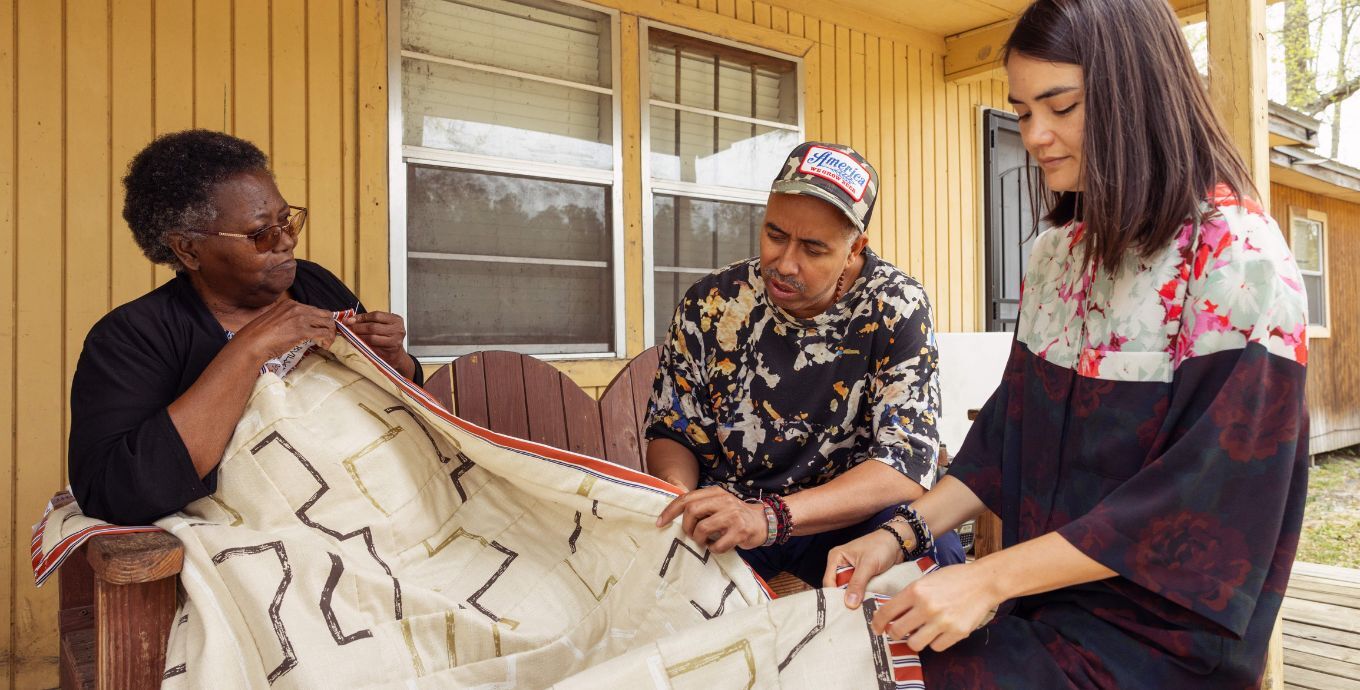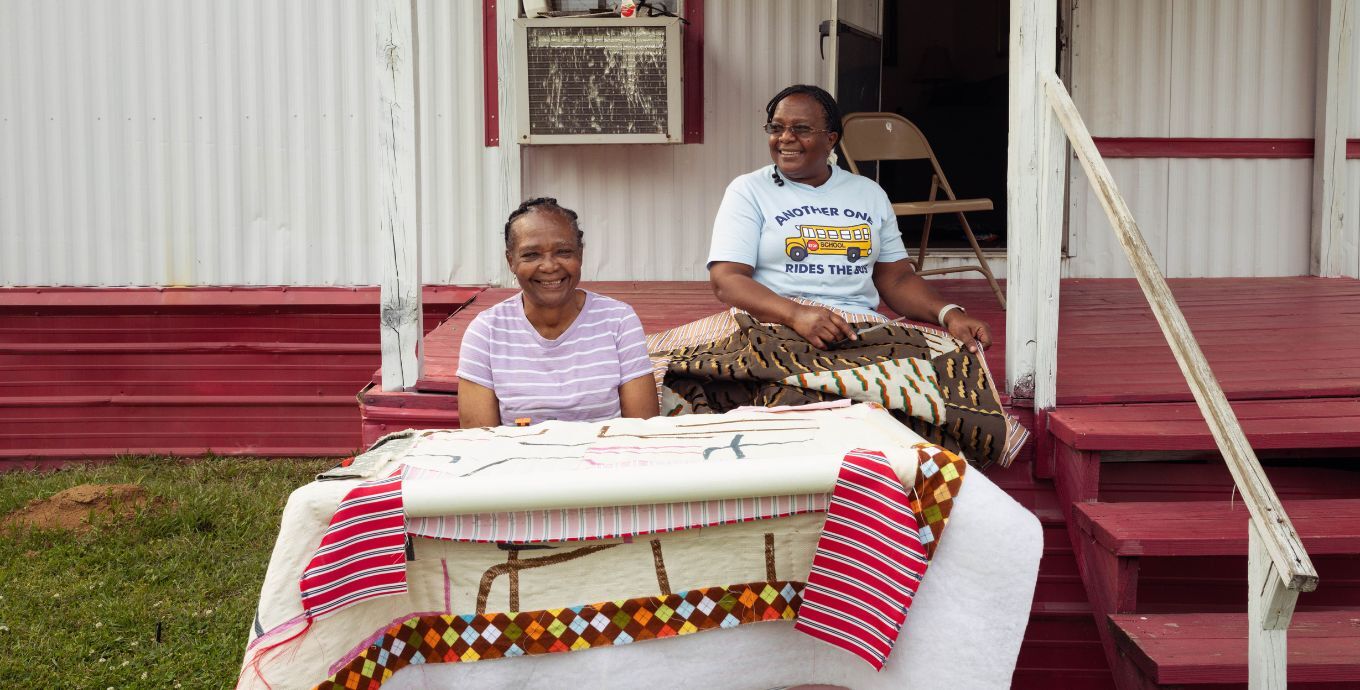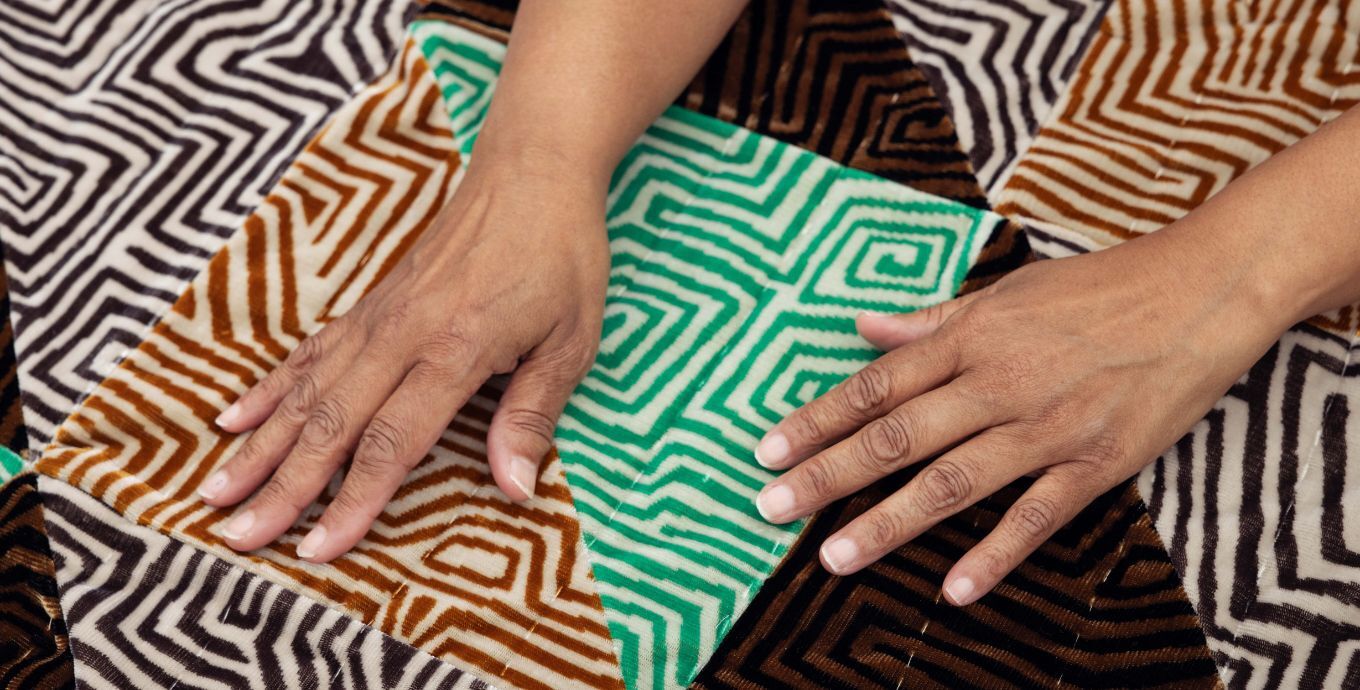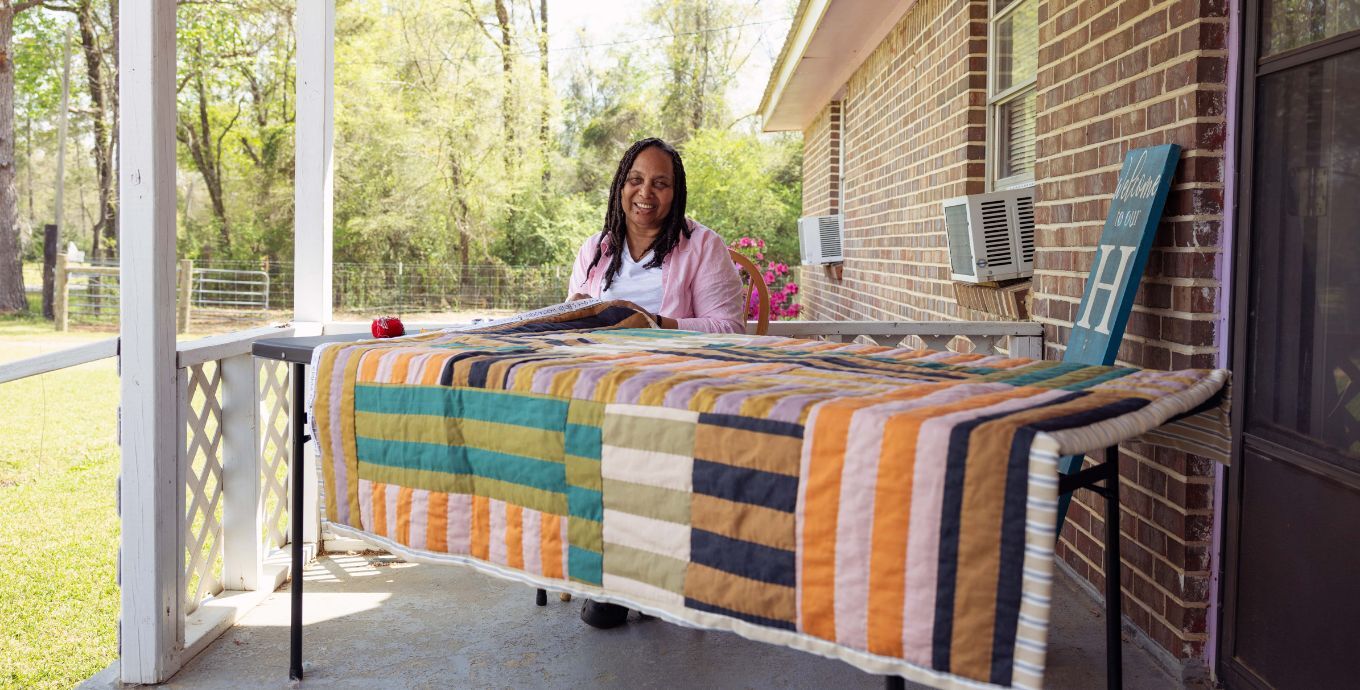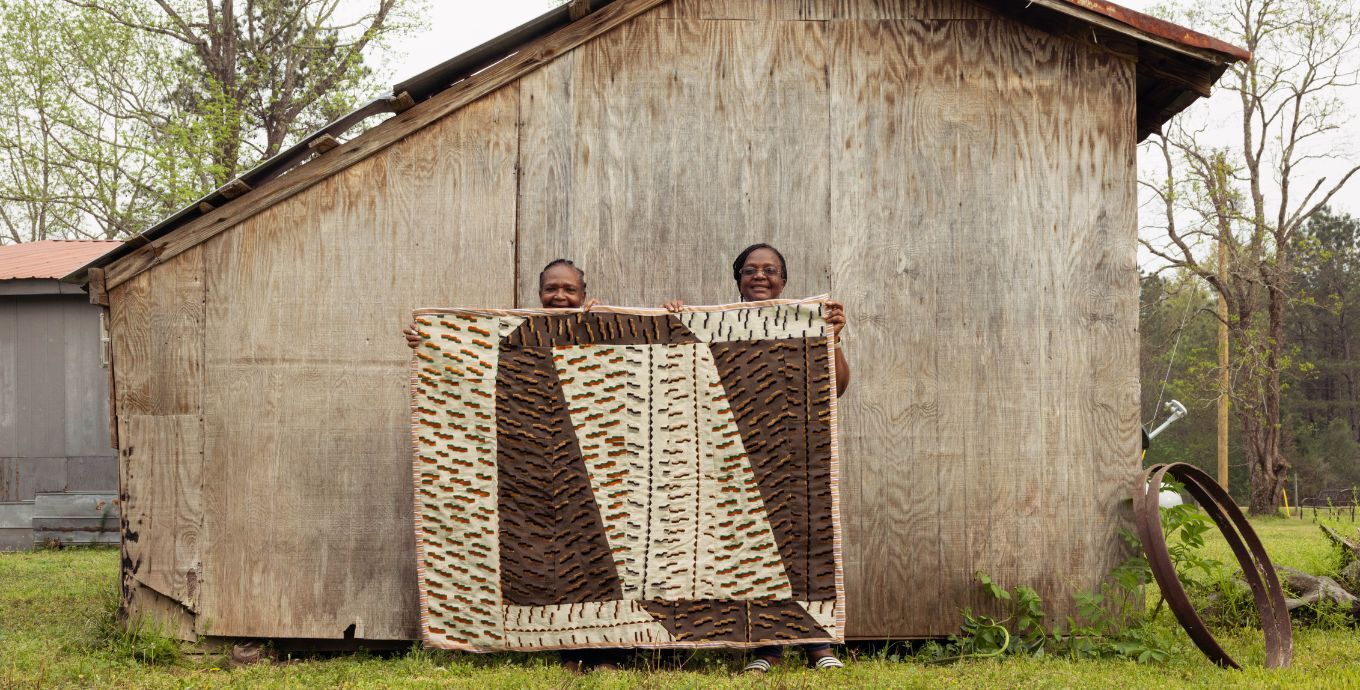Dedar and Stephen Burks Man Made celebrate the quilting legacy of Sew Gee’s Bend Heritage Builders
Dedar presents a new collaboration with Stephen Burks Man Made and the non-profit Sew Gee’s Bend Heritage Builders, previewed at the Biennale Architecture 2025 in Venice.
In the heart of Boykin, Alabama—a small African American community known as Sew Gee’s Bend Heritage Builders—a unique quilting tradition has been passed down through generations. Characterized by bold geometries, improvisational compositions, and expressive use of repurposed materials, their quilts are recognized as one of the most powerful and original forms of American abstraction.
In Gee’s Bend, quiltmaking emerged as a domestic, female-centered practice, but over time it evolved into a powerful vehicle for personal identity and civil resistance. Named after Joseph Gee, the first white man to settle in the area in the early 1800s, Gee’s Bend is home to some seven hundred residents, many of whom are descendants of the slaves who worked Gee’s plantation. After emancipation in 1865, many freed slaves continued making a living off the land as tenant farmers or sharecroppers.
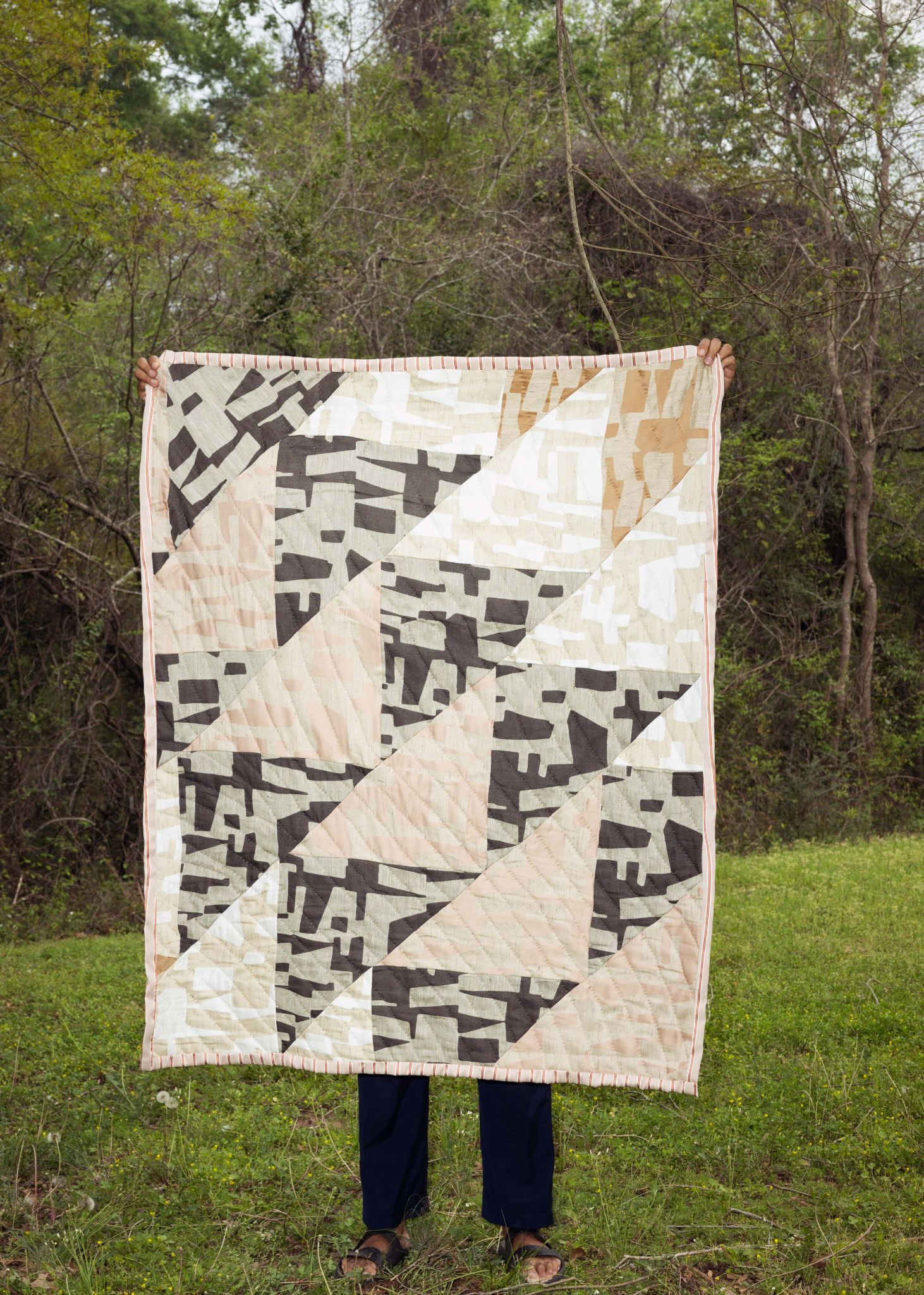
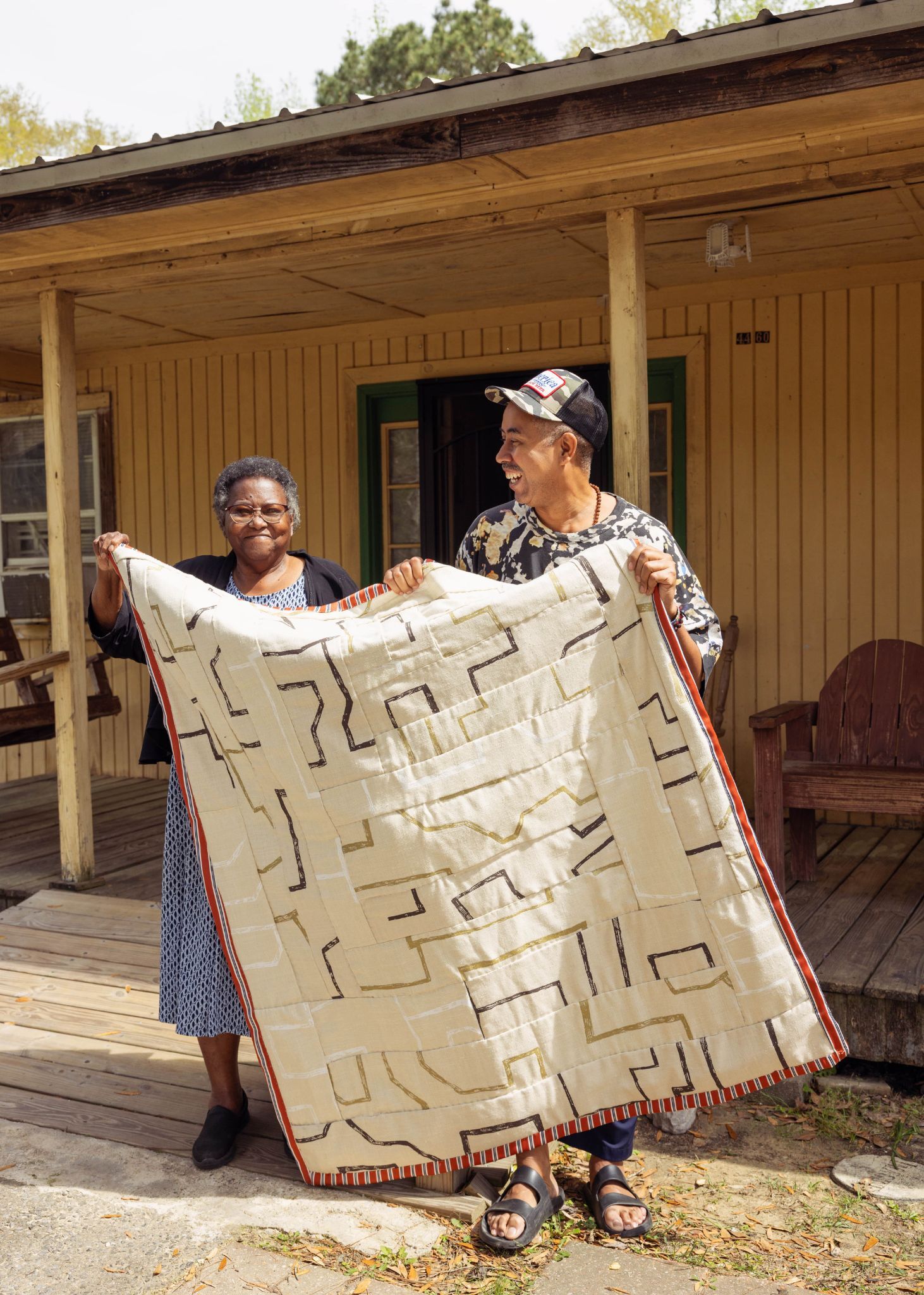
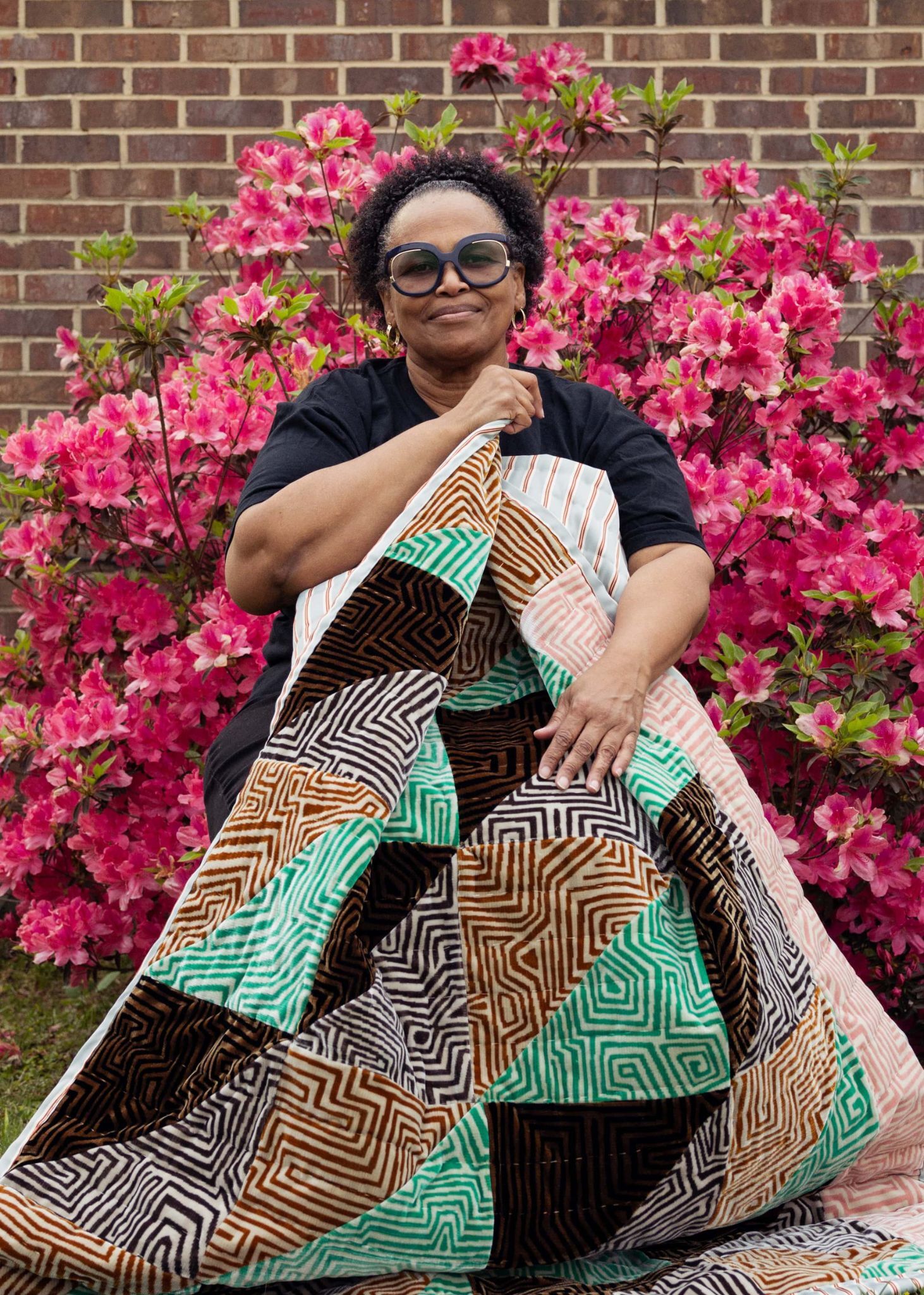
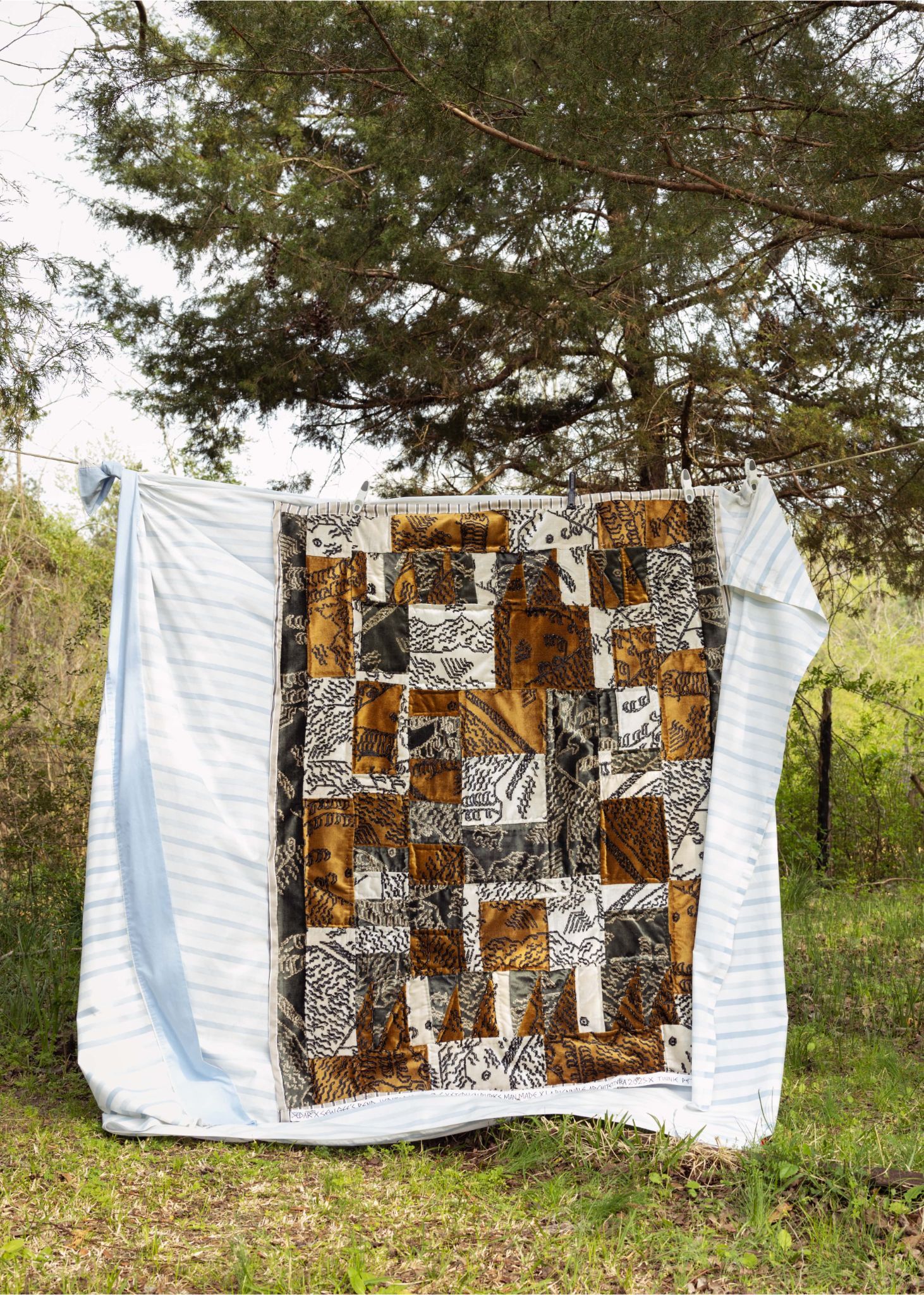
During the Civil Rights Movement, quilts became a valuable source of income in support of protestors who had been jailed or lost their jobs in the struggle for racial equity. In 1966, the Freedom Quilting Bee was organized by the townswomen of Gee’s Bend, and the quilts they produced were sold to large department stores such as Bloomingdales and Saks to support liberation. Today, the quilts of Gee’s Bend are in the collections of the Metropolitan Museum of Art, the Philadelphia Museum of Art, the Whitney Museum of American Art, as well as many others.
During a workshop in Gee’s Bend, Stephen Burks and Malika Leiper collaborated with the quilters to begin the process of producing ten unique quilts using fabrics donated by Dedar. These pieces emerged from a dialogue between memory and material, weaving together ancestral techniques and contemporary visions.
The resulting works debuted in the United States Pavilion at the 2025 Venice Architecture Biennale, as part of the broader exhibition “PORCH: An Architecture of Generosity”. This project explores the convergence of cultures and languages, where fabric becomes a conduit for stories, heritage, and new possibilities.
Photo credit: Rob Culppepper
